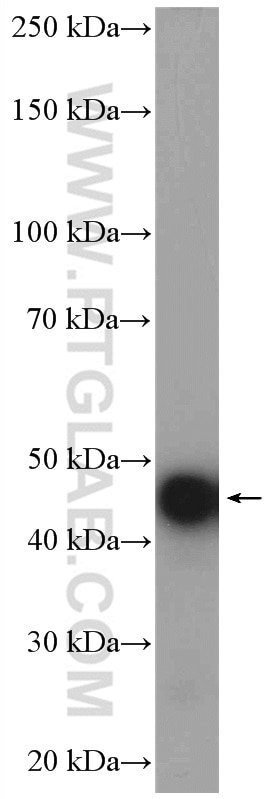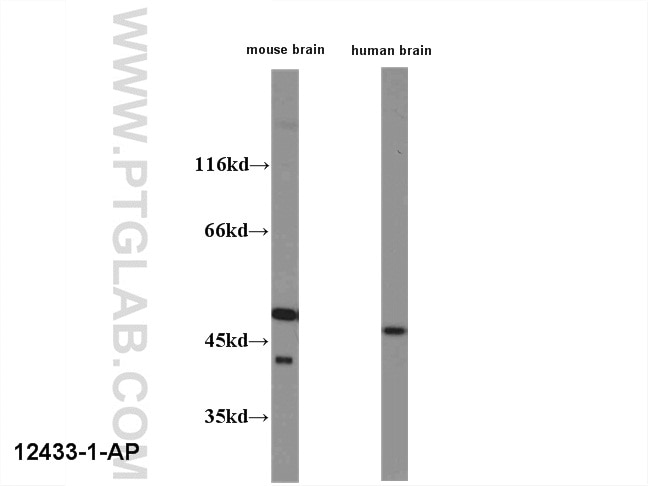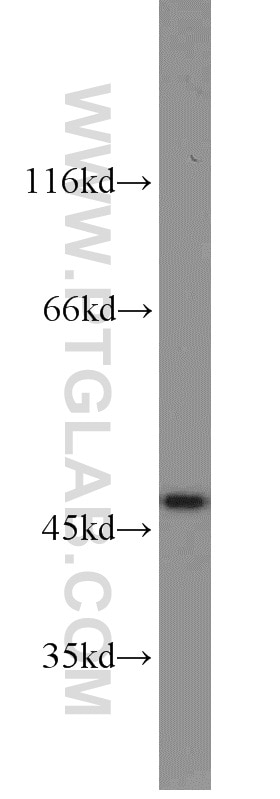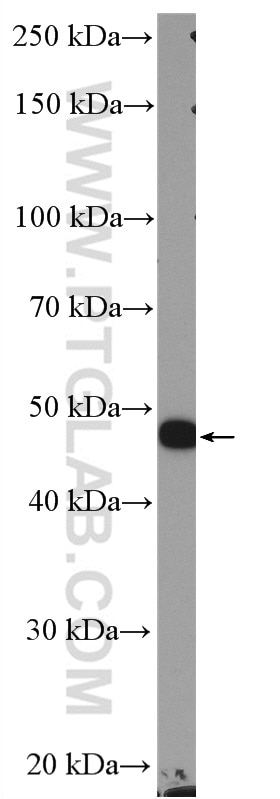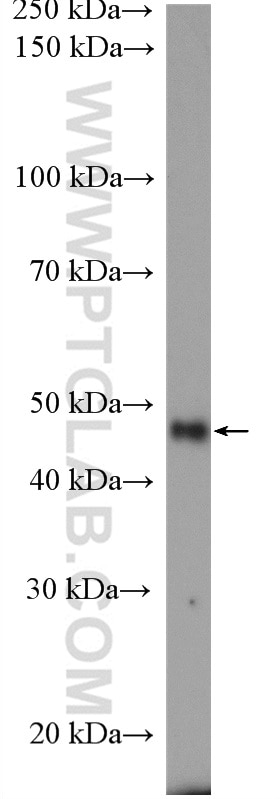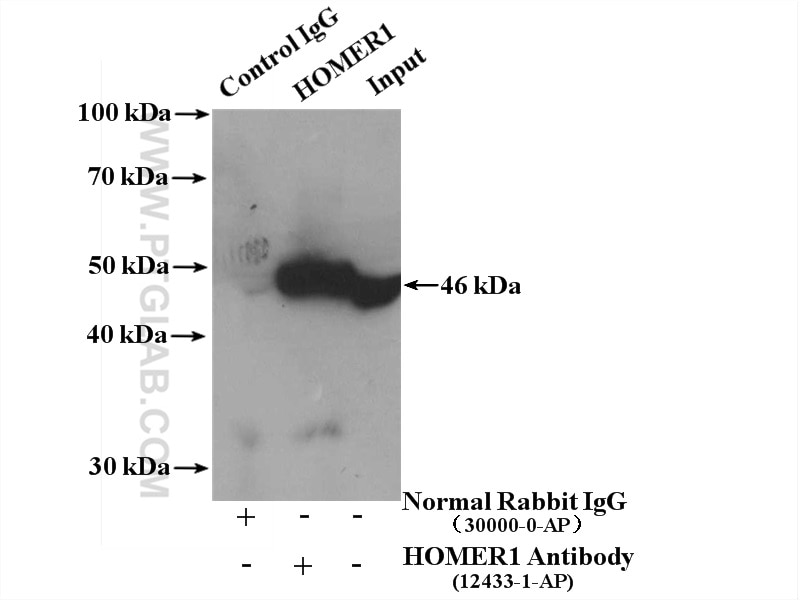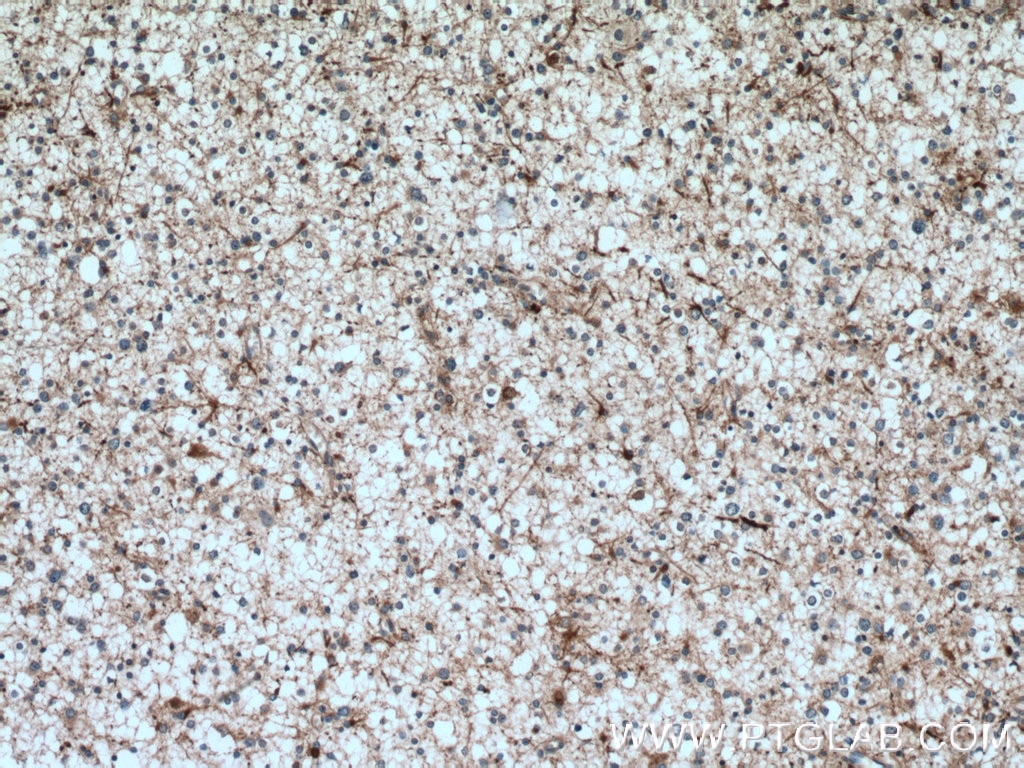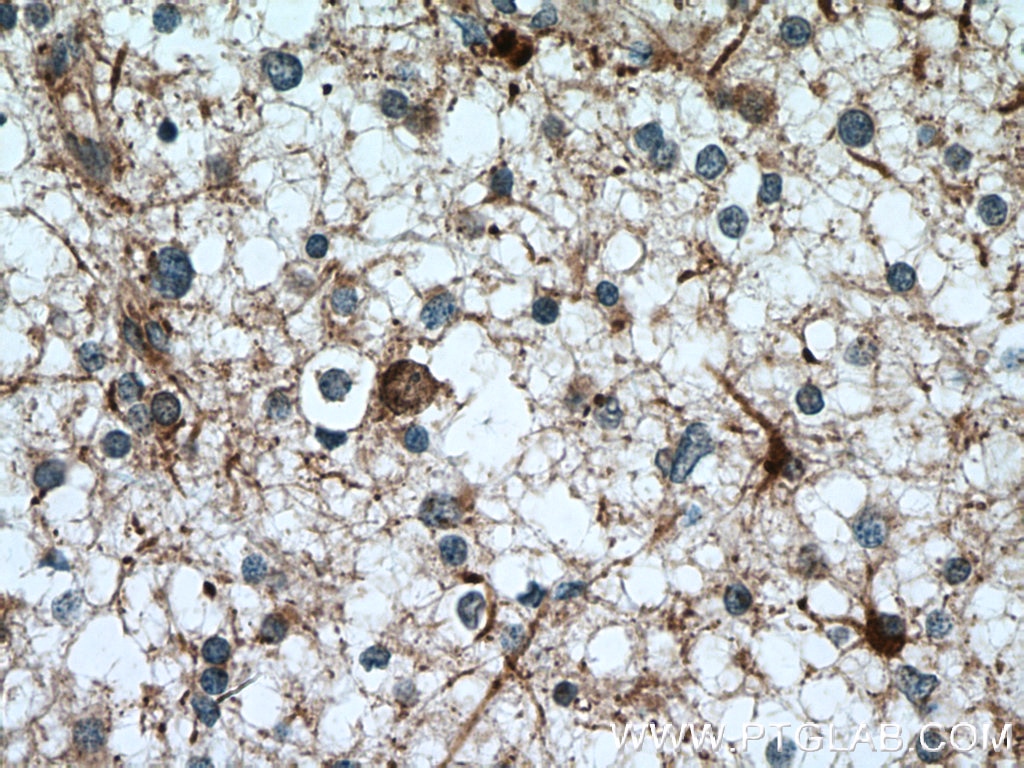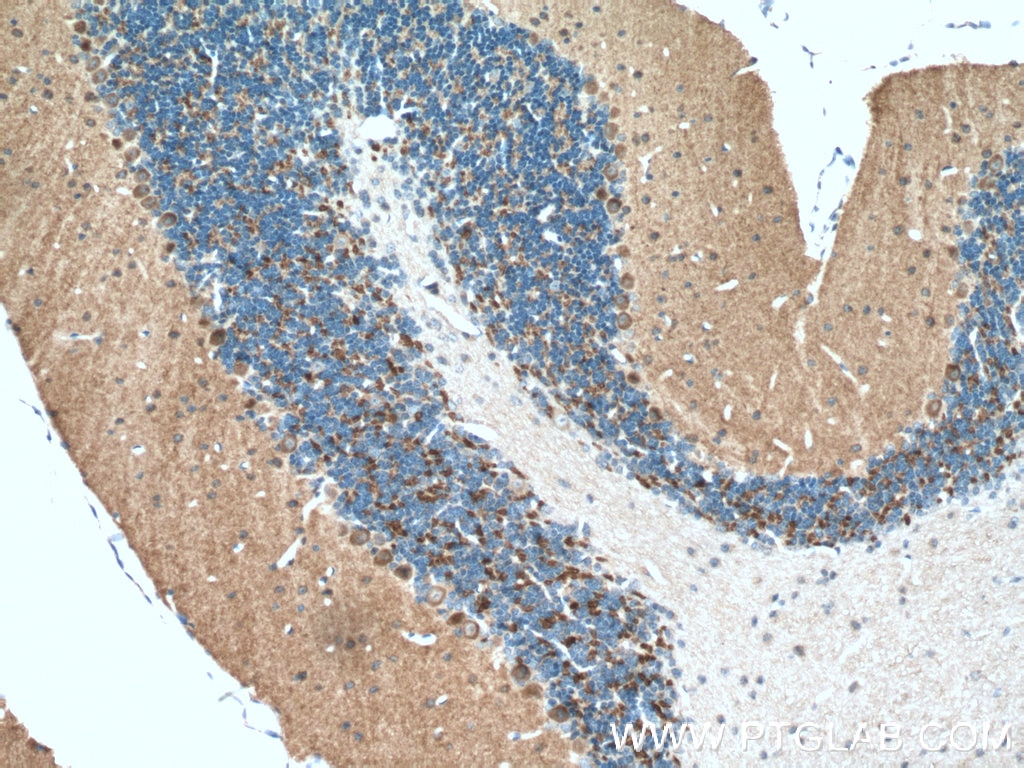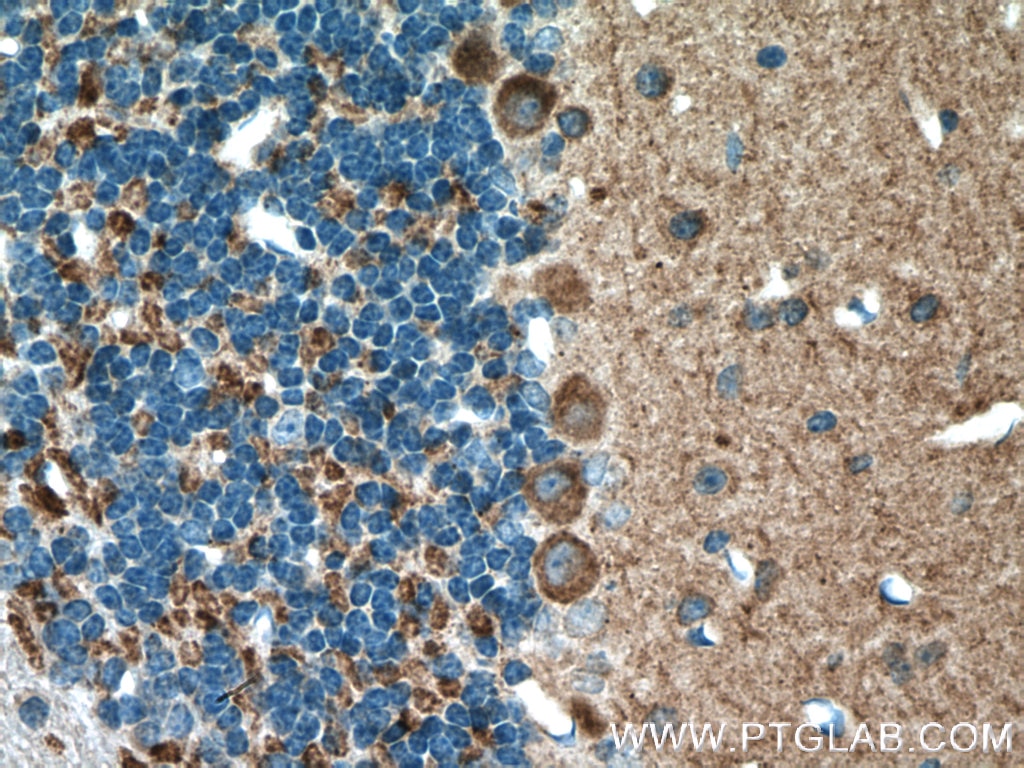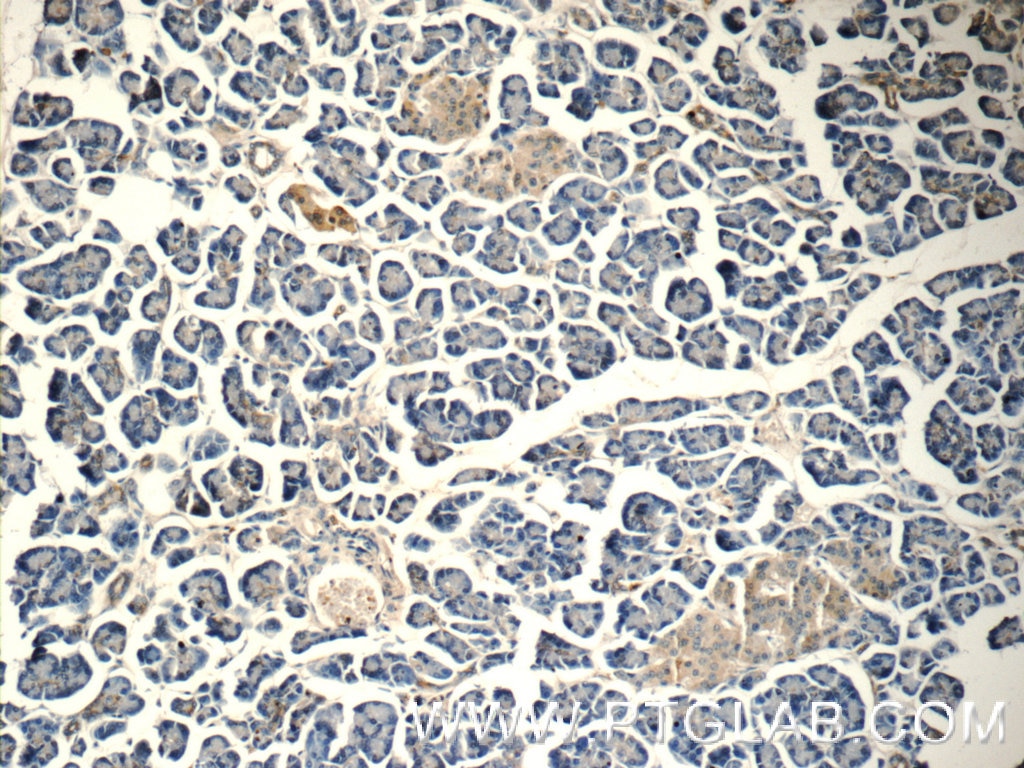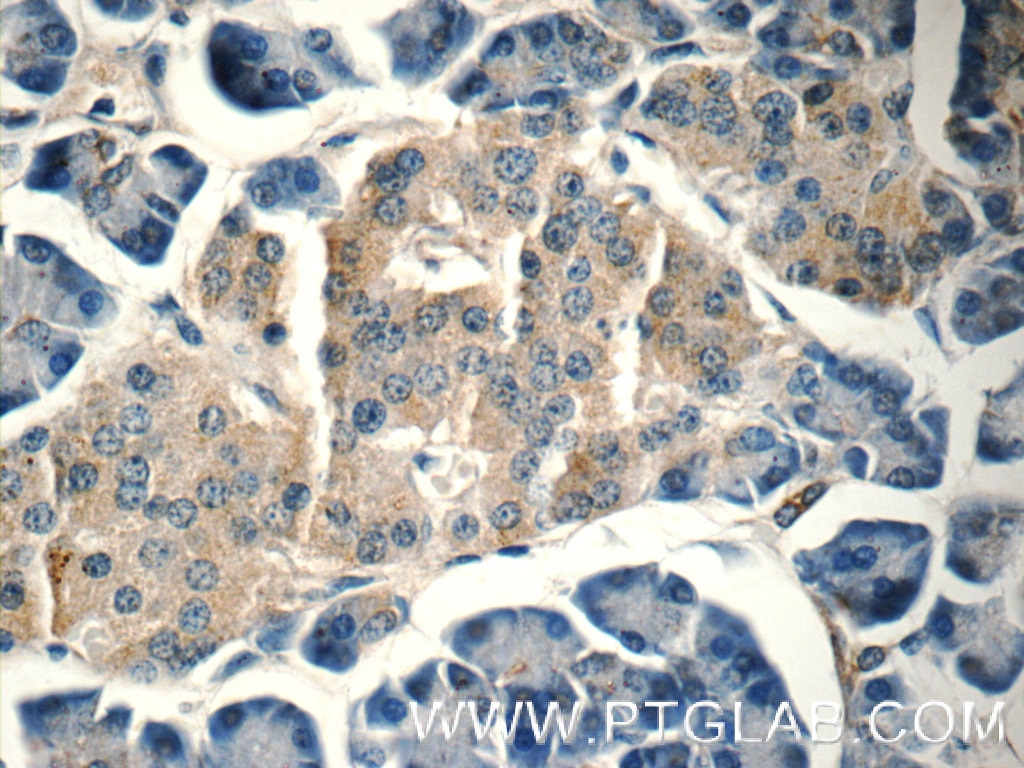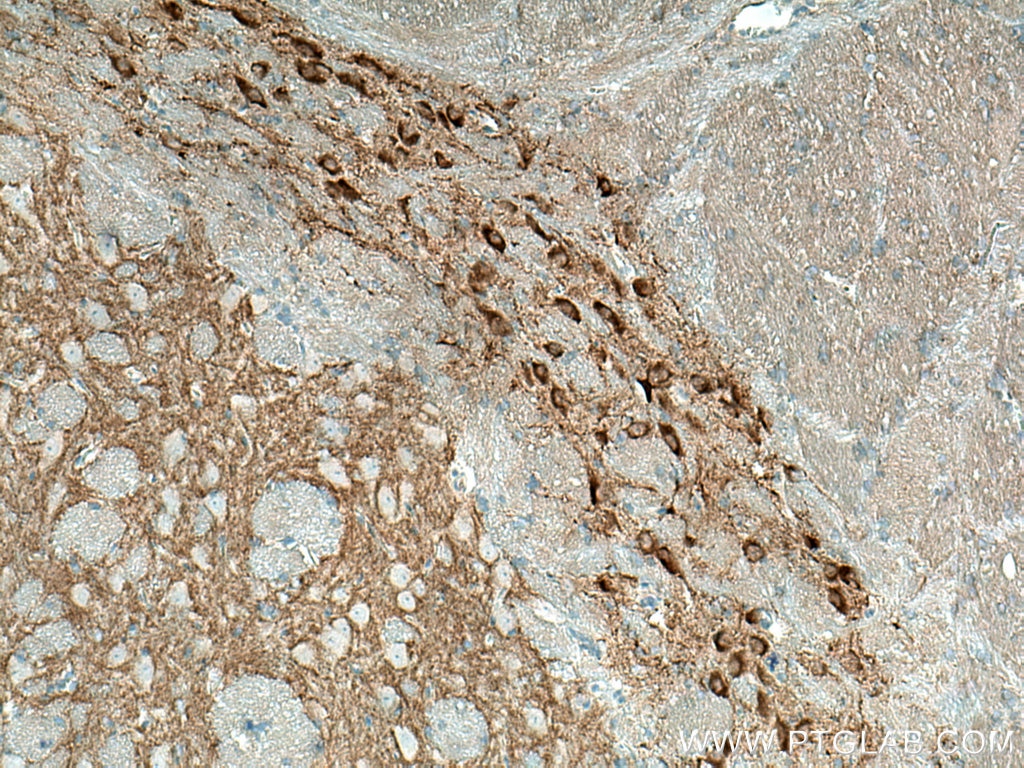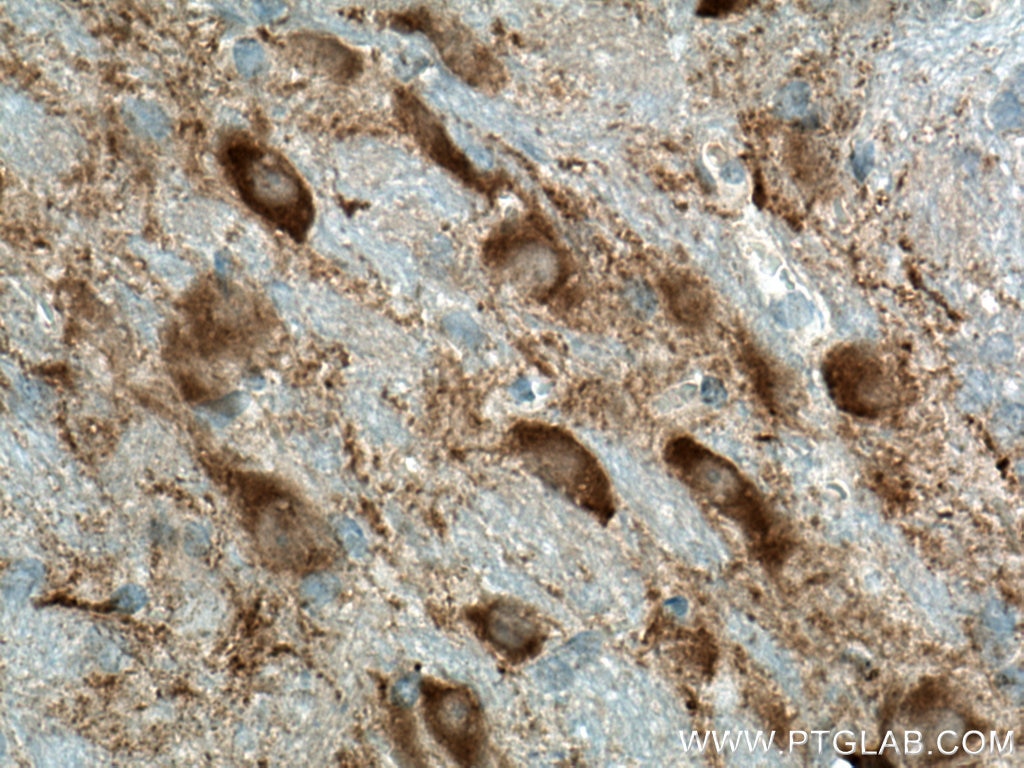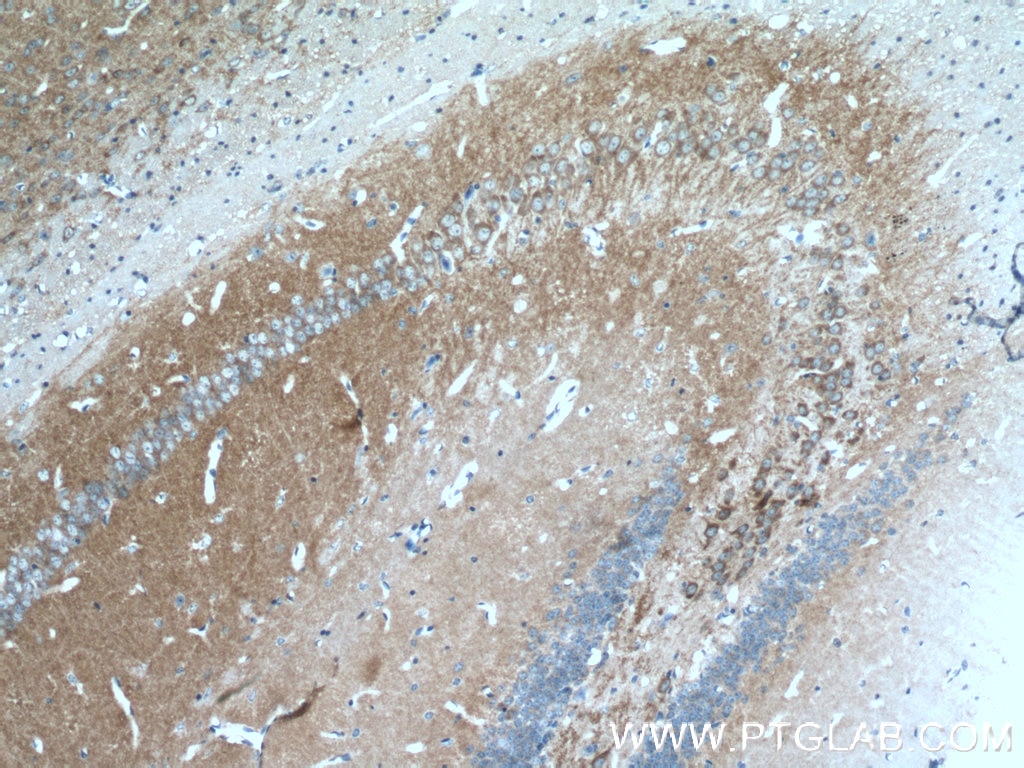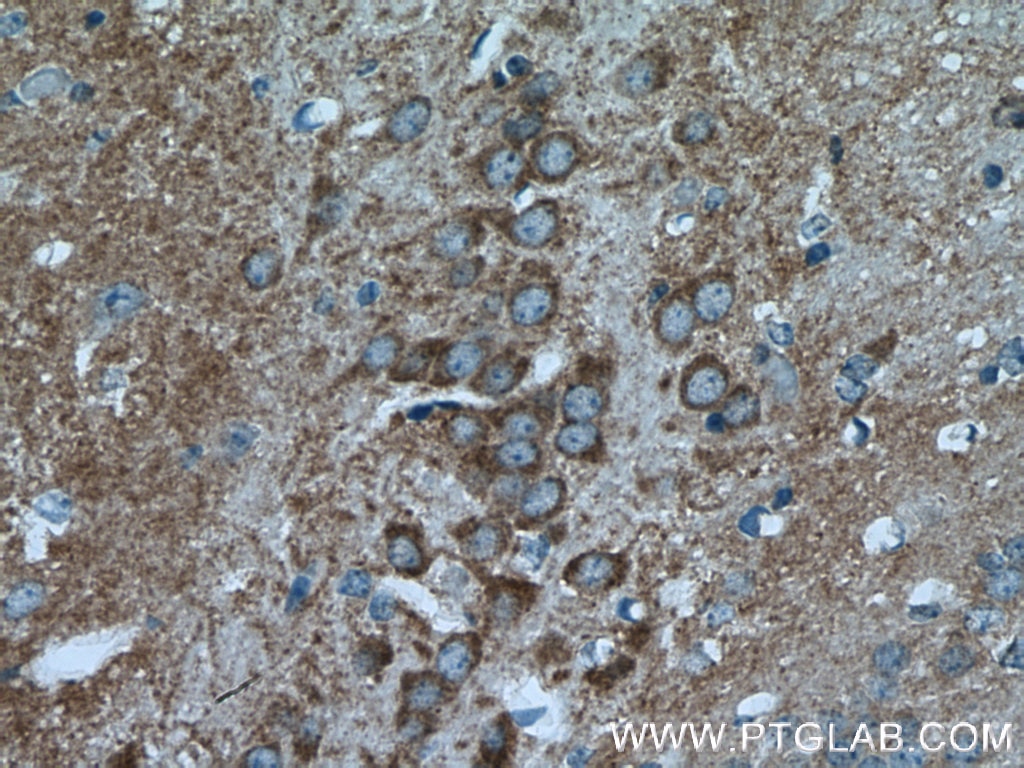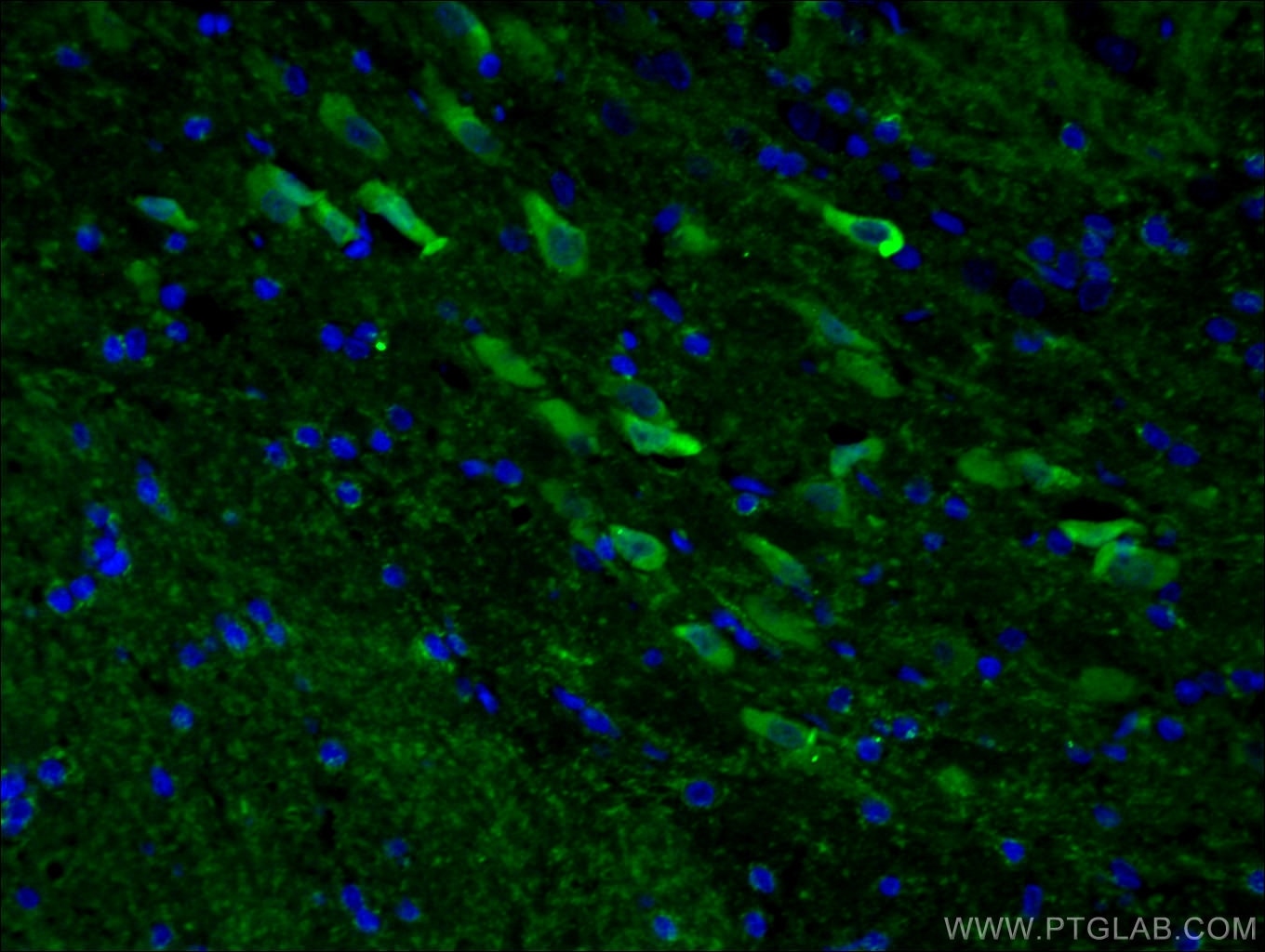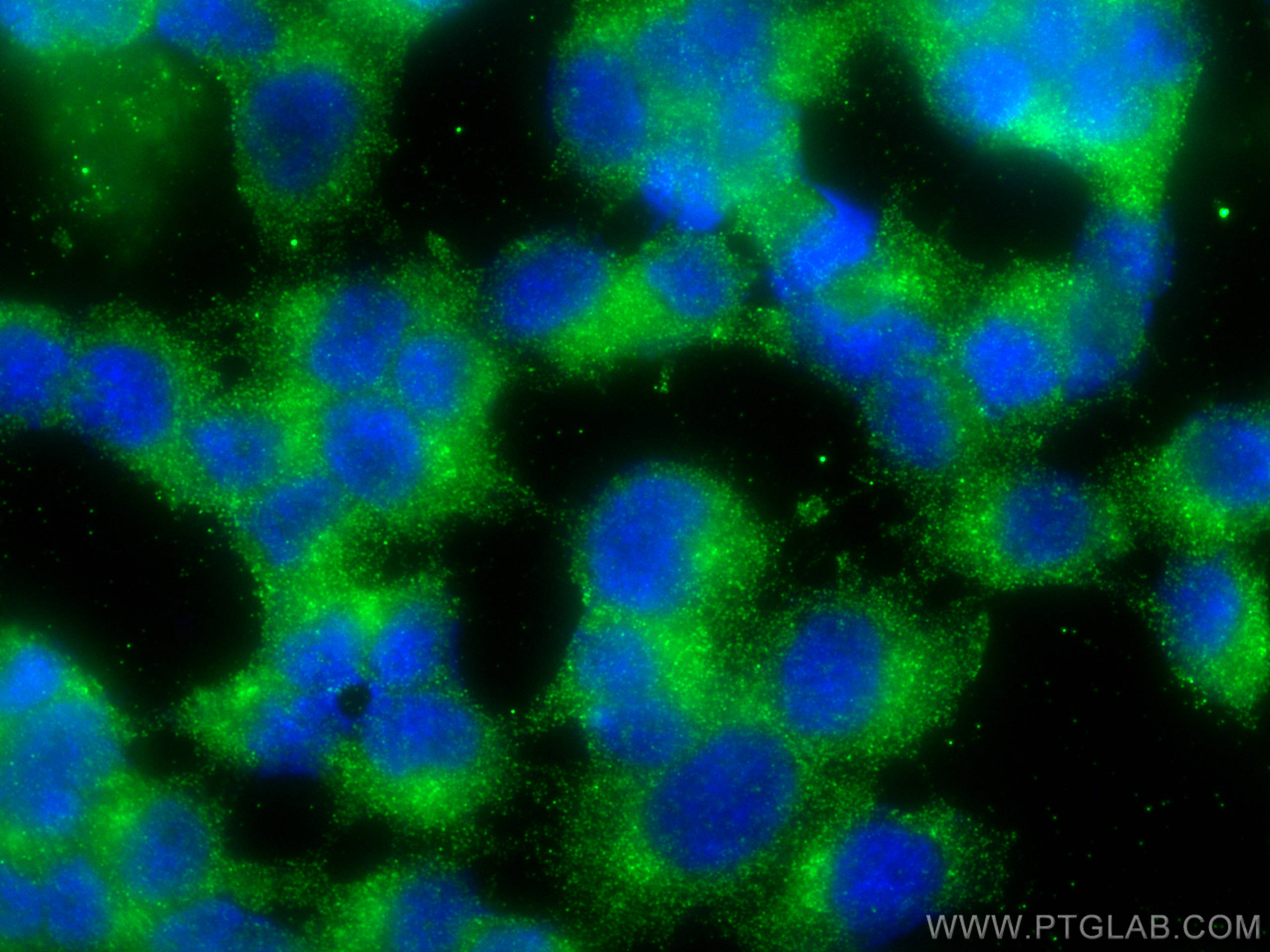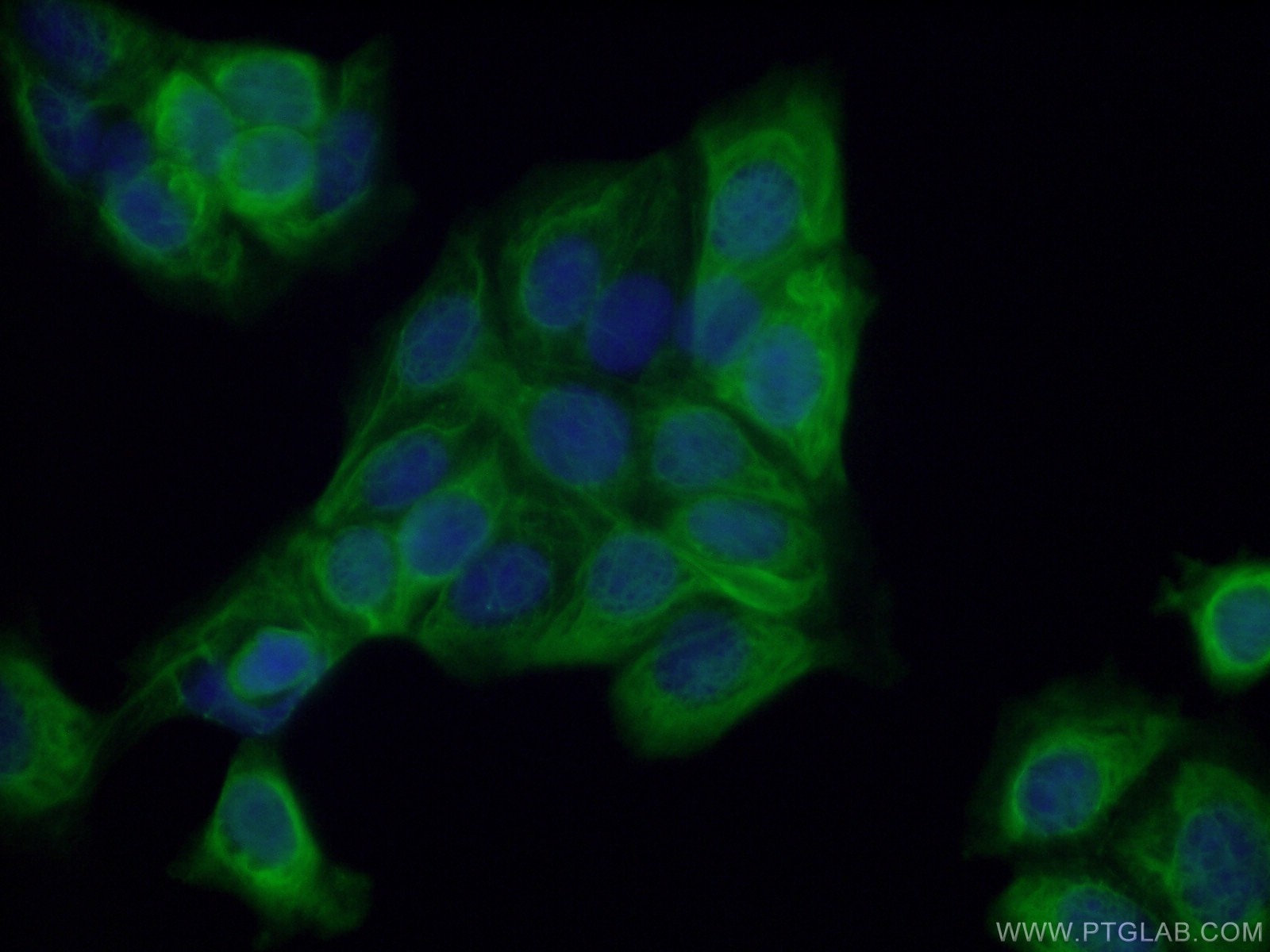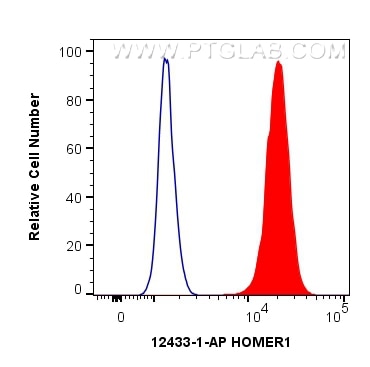Tested Applications
| Positive WB detected in | rat brain tissue, human brain tissue, human/mouse brain |
| Positive IP detected in | fetal human brain tissue |
| Positive IHC detected in | human gliomas tissue, mouse brain tissue, rat brain tissue, human pancreas tissue Note: suggested antigen retrieval with TE buffer pH 9.0; (*) Alternatively, antigen retrieval may be performed with citrate buffer pH 6.0 |
| Positive IF-P detected in | rat brain tissue |
| Positive IF/ICC detected in | PC-12 cells, MCF-7 cells |
| Positive FC (Intra) detected in | SH-SY5Y cells |
Recommended dilution
| Application | Dilution |
|---|---|
| Western Blot (WB) | WB : 1:1000-1:5000 |
| Immunoprecipitation (IP) | IP : 0.5-4.0 ug for 1.0-3.0 mg of total protein lysate |
| Immunohistochemistry (IHC) | IHC : 1:50-1:500 |
| Immunofluorescence (IF)-P | IF-P : 1:50-1:500 |
| Immunofluorescence (IF)/ICC | IF/ICC : 1:200-1:800 |
| Flow Cytometry (FC) (INTRA) | FC (INTRA) : 0.40 ug per 10^6 cells in a 100 µl suspension |
| It is recommended that this reagent should be titrated in each testing system to obtain optimal results. | |
| Sample-dependent, Check data in validation data gallery. | |
Published Applications
| KD/KO | See 1 publications below |
| WB | See 11 publications below |
| IHC | See 2 publications below |
| IF | See 6 publications below |
Product Information
12433-1-AP targets HOMER1 in WB, IHC, IF/ICC, IF-P, FC (Intra), IP, ELISA applications and shows reactivity with human, mouse, rat samples.
| Tested Reactivity | human, mouse, rat |
| Cited Reactivity | mouse, rat, zebra finches |
| Host / Isotype | Rabbit / IgG |
| Class | Polyclonal |
| Type | Antibody |
| Immunogen | HOMER1 fusion protein Ag3109 Predict reactive species |
| Full Name | homer homolog 1 (Drosophila) |
| Calculated Molecular Weight | 40 kDa |
| Observed Molecular Weight | 46-48 kDa |
| GenBank Accession Number | BC015502 |
| Gene Symbol | HOMER1 |
| Gene ID (NCBI) | 9456 |
| RRID | AB_2295573 |
| Conjugate | Unconjugated |
| Form | Liquid |
| Purification Method | Antigen affinity purification |
| UNIPROT ID | Q86YM7 |
| Storage Buffer | PBS with 0.02% sodium azide and 50% glycerol , pH 7.3 |
| Storage Conditions | Store at -20°C. Stable for one year after shipment. Aliquoting is unnecessary for -20oC storage. 20ul sizes contain 0.1% BSA. |
Background Information
Human HOMER1, also named as SYN47, belongs to the Homer family. Human HOMER1 has some isoforms: HOMER1a, HOMER1b, HOMER1c, HOMER1e and HOMER1h. Mouse Homer1 also named as Vesl-1 and it has some isoforms: Vesl-1l, Vesl-1m, Vesl-1s, Homer1b, and Homer1d. HOMER1 is a postsynaptic density scaffolding protein. It is a neuronal immediate-early gene (IEG) that is enriched at excitatory synapses and binds mGluRs. In WB, the MW of HOMER1 is about 46-50kd, 40-43kd and 20-26kd.
Protocols
| Product Specific Protocols | |
|---|---|
| WB protocol for HOMER1 antibody 12433-1-AP | Download protocol |
| IHC protocol for HOMER1 antibody 12433-1-AP | Download protocol |
| IF protocol for HOMER1 antibody 12433-1-AP | Download protocol |
| IP protocol for HOMER1 antibody 12433-1-AP | Download protocol |
| Standard Protocols | |
|---|---|
| Click here to view our Standard Protocols |
Publications
| Species | Application | Title |
|---|---|---|
Mol Psychiatry A recurrent SHANK1 mutation implicated in autism spectrum disorder causes autistic-like core behaviors in mice via downregulation of mGluR1-IP3R1-calcium signaling. | ||
PLoS Genet Cell fate specification in the lingual epithelium is controlled by antagonistic activities of Sonic hedgehog and retinoic acid. | ||
Aging (Albany NY) Liraglutide preconditioning attenuates myocardial ischemia/ reperfusion injury via homer1 activation.
| ||
CNS Neurosci Ther Acid-sensing Ion Channels Activation and Hypoxia Upregulate Homer1a Expression. | ||
Cell Signal Tissue kallikrein protects neurons from hypoxia/reoxygenation-induced cell injury through Homer1b/c. |
